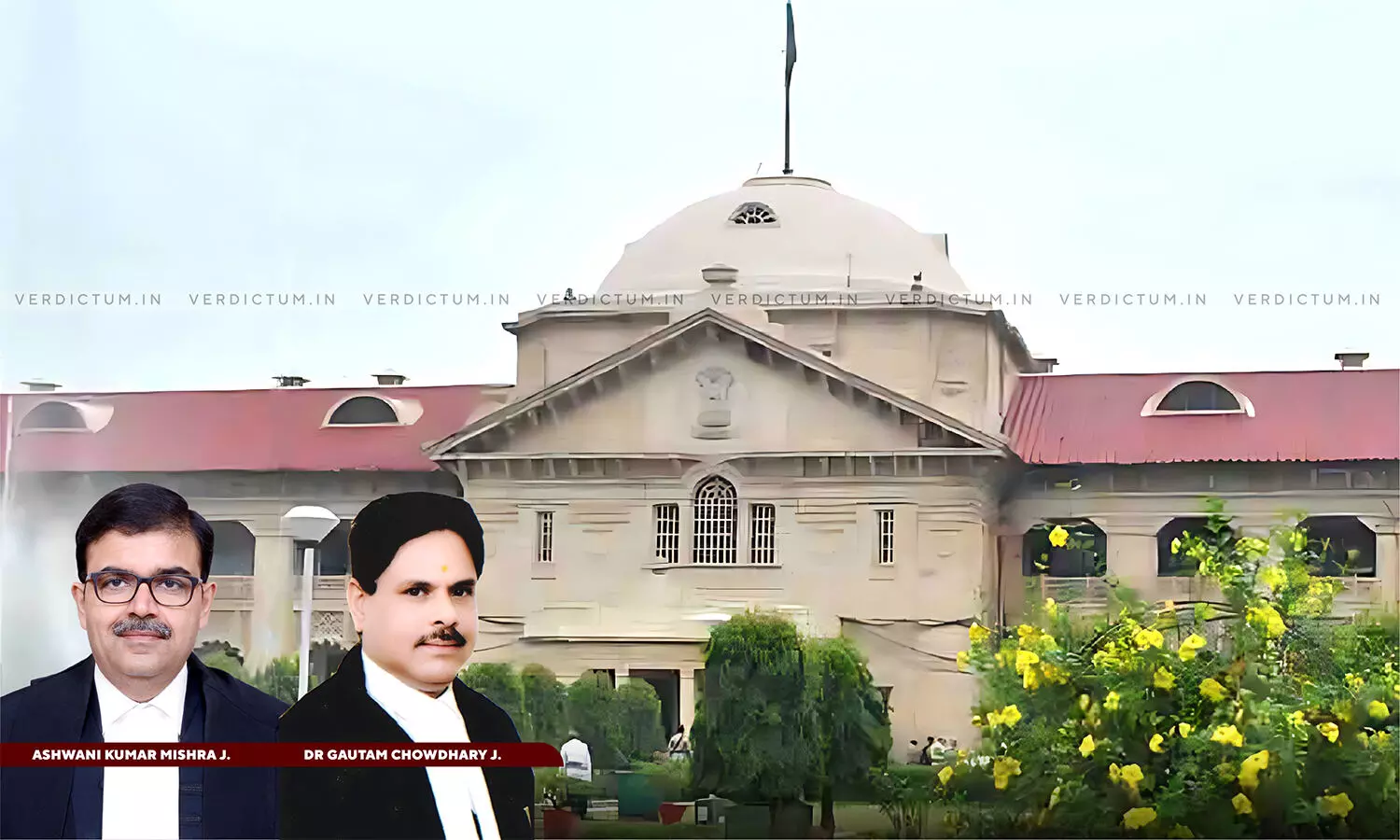
Extra Judicial Confession Is A Weak Piece Of Evidence; Unless It's Convincing, Not Much Weight Can Be Accorded To It: Allahabad HC
 |
|The Allahabad High Court reiterated that unless the extra-judicial confession is found convincing, not much weight can be accorded to it as it is a weak piece of evidence.
The Division Bench of Justice Ashwani Kumar Mishra and Justice Gautam Chowdhary held, “Extra judicial confession by its very nature is otherwise a weak piece of evidence. Unless the attending circumstances are such that the extra judicial confession is found convincing, not much weight can be accorded to it. In view of the fact that the two other witnesses to the extra judicial confession have not supported the prosecution case, and we otherwise suspect the credibility of the disclosure made by P.W.-1, it would be impermissible for us to accept the extra judicial confession as a credible piece of evidence in support of the prosecution case.”
Advocate Akhilesh Kumar Mishra appeared for the Appellants whereas Government Advocate appeared for the Respondent.
A criminal appeal was filed by the Appellant who was an accused in a case arising from an FIR registered under Section 302 of the Indian Penal Code, 1860. The Appeal challenged the judgment of conviction.
The Informant was the husband of the Deceased who gave a written report stating that his wife was found dead. Apprehension was expressed that the incident happened due to enmity regarding a dispute over a platform.
The Counsel for the Appellant submitted that the prosecution evidence was not reliable particularly the extra-judicial confession, which was concocted. He also contended that the appellant was falsely implicated by his brother, after killing his wife to marry the lady with whom he was having an affair and he manipulated evidence in connivance with the Police and falsely implicated the Appellant.
The Court said that the Prosecution relied on the extra-judicial confession made by the Appellant and the testimony of a child witness who was the son of the deceased. At the time of the incident, the child was around three years old. The Sessions Court also relied on this evidence.
The Court said, “It is a matter of surprise that notwithstanding such information given by P.W.-3 to the I.O. and the informant no steps in the course of investigation was taken against him. The accused appellant was neither arrested nor the prosecution investigated the role of the accused appellant in the crime. There is absolutely no explanation put-forth by the prosecution for not proceeding on the basis of disclosure made by P.W.-3. The serious lapse in not implicating/apprehending the accused appellant from 06.10.2010 on-wards, till the introduction of the version of alleged extra judicial confession made by the accused appellant on 25.11.2010 remains wholly unexplained. This lapse creates a serious dent in the prosecution case. Even during the course of arguments in this appeal learned A.G.A. has not been able to furnish any credible justification for not acting on the information of P.W.-3.”
Further, the Court stated that the evidence on record makes it clear that the informant remarried within a month of the ghastly murder of his wife. The first defence witness was the real brother of the informant as well as the appellant, who stated that the informant had an affair with the lady with whom he later solemnized his second marriage. D.W.-1 also stated that there were often fights between the deceased and the informant on account of the affair between the informant and the lady with whom the informant remarried soon after the death of his wife.
“When we test the veracity of the statement of the informant bearing in mind the surrounding circumstances, which reflects adversely on the reliability of the informant, we do not find his testimony to be above doubt.”, the Court observed.
Accordingly, the Court allowed the Appeal and set aside the impugned judgment.
Cause Title: Kishan Pratap Singh v. State of U.P. (Neutral Citation: 2024:AHC:135178-DB)
Appearances:
Appellant: Advocates Akhilesh Kumar Mishra, Birendra Singh, Kamlesh Kumar Tripathi, Lal Mani Singh, Ulajhan Singh Bind
Respondent: Government Advocate